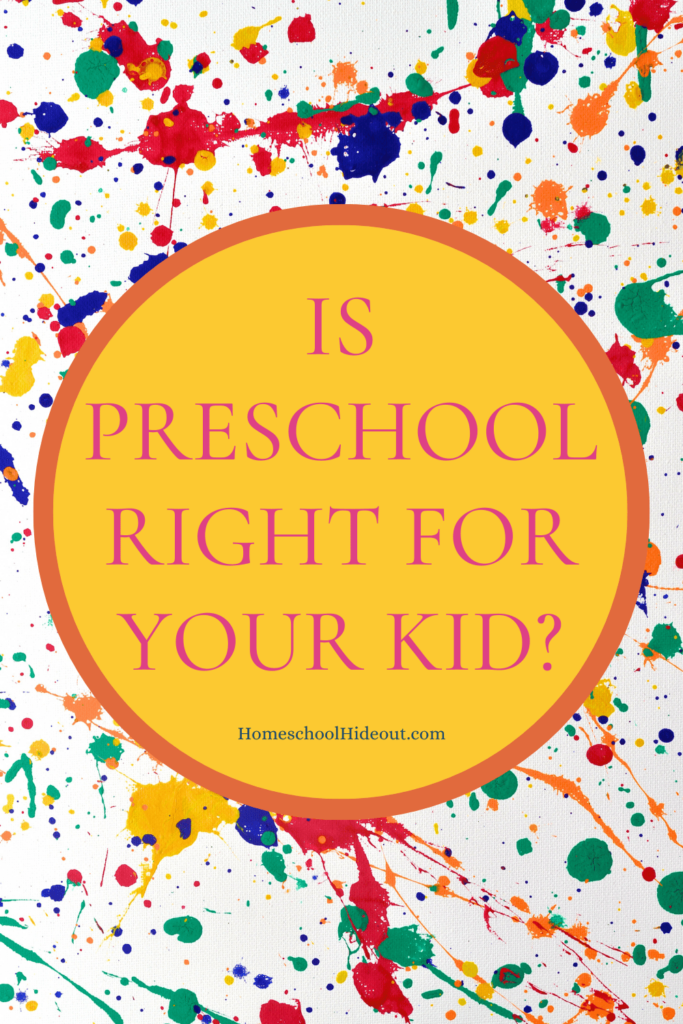The Role of Preschool in Early Childhood Development
You might be wondering whether preschool education is necessary for your child. As a parent, you typically have a lot of financial commitments and would look for saving opportunities.
With the cost of preschool education averaging around USD$372 to USD$1,100 per month, you’ll need the assurance that it’s highly beneficial for your kid before enrolling them.
In this article, we’ll explore the role of preschool in early childhood development. Hopefully, by the end of this post, you’ll be in a position to decide for or against it.

The Role of Preschool in Early Childhood Development
Cognitive development
Cognitive skills refer to the mental capability to acquire and process new information. These are helpful in learning and problem-solving.
Preschool aids in cognitive skills development in the following ways:
- Literacy development: Children can significantly develop their language skills at a preschool. Most of them have storytelling sessions where kids listen to interesting tales from their instructors. By and by, they become narrators, with a strong urge to tell their friends stories. It makes them learn letters and sounds. Moreover, they sharpen their vocabulary and comprehension capabilities.
- Mathematical reasoning: Besides words and letters, preschool also boosts kids’ mathematical reasoning. Games like ‘Count the Blocks’ instill basic number concepts. They also learn basic classification principles through sorting items by color or size. Moreover, simple puzzles help them develop logical reasoning skills.
Exposure to such concepts prepares children to become confident learners, boosting their developmental growth. If you’re yet to enroll your kid in preschool, you can find one locally for convenience, enabling you to quickly drop by and pick up your child.
Social Skills
Most family settings don’t constantly expose kids to growing up with others. You’ll typically find a home with one or a few kids who don’t interact much with others in the neighborhood. However, growing this way for a long time denies kids the much-needed social skills critical in their early life.
Enrolling them in preschool changes things. They meet other children from different backgrounds and spend several hours with them daily. Through group activities like gardening, painting, and games, they also appreciate the importance of working together. Such teamwork skills will serve them well as they grow up.
Emotional resilience
Life is full of setbacks, even for kids. They may run into bad grades or friendship issues. Frustrations and disappointments may also happen while playing and interacting with other kids. Think about losing a game or scuffling for toys. They’ll need resilience to overcome life’s stresses, and preschool can introduce them to highs and lows in mild form.
Harvard University looks at resilience as the tendency of a child’s development and health tipping toward positive outcomes, even in the face of significant factors leading to negative outcomes. And while at preschool, they can learn to understand and manage their emotions. Moreover, since they’re around other kids, they’ll learn about others’ feelings and how to be considerate.
Creativity
Preschool can provide a good environment for kids to explore the world and discover themselves. Consider the typical activities they engage in, such as dancing, music, drawing, painting, or role-playing. Besides having fun, these undertakings also encourage kids to explore and channel their creativity.
Motor skill development
Motor skills are one of the most significant developmental milestones for kids. Gross motor skills involve large muscles; think about activities like jumping, running, and swinging. Meanwhile, fine motor skills entail small muscle movements. Examples include writing, tying shoelaces, threading beads, and using scissors.
The Centers for Disease Control (CDC) outlines typical developmental milestones for kids of every age. For instance, by two years, a child should be able to play with more than one toy simultaneously, kick a ball, and eat with a spoon. At age five, kids should be able to hop on one foot, count to 10, and button up a shirt.
Preschool helps set the foundation for the development of motor skills through a mix of physical and creative activities.
Development of learning habits
Preschool prepares your kid for the demands of formal education. For one, they learn how to keep time as they’re required to arrive at school on time and transition timely from one activity to another. They also learn how to follow instructions.
For instance, kids may be required to line up for snacks or take turns to paint in an art project. Though they seem little, these experiences impart skills they’ll use in elementary, middle, high school, and beyond.
Kids are also introduced to routines. Preschool follows a structured program, unlike freestyle homeschooling. There’s a particular time for reading, eating, playing, and so on. This is what formal school entails, too. As a result, the kids will be well-prepared by the time they enroll.
Nurturing a love for learning
It’s not unusual for some kids to dread attending school, causing quite some trouble for parents. This is where preschool comes in; they help kids embrace learning.
Young kids are generally curious about everything. They have a deep urge to explore the world and discover why things are the way they are, and preschool offers them an avenue to quench this curiosity by including sensory play, science experiments, arts, and music in their curriculum.
Such activities captivate the young minds, helping them develop a certain attachment to school. They can then see it as a place where they go to have fun and bond with other kids. It won’t seem like a chore or a punishment anymore, which can mean transitioning to formal learning won’t be an uphill task since they already have a positive attitude toward learning.
Conclusion
Preschool isn’t just a place to leave your kid as you pursue other tasks. Enrolling them in preschool can give your kid’s development a good foundation since they can gain several skills that will help them later in grade school and life.
So, don’t underestimate the power of preschool in early childhood development. Your winning point is choosing a high-standard institution with qualified staff where your kid can thrive physically, emotionally, socially, and mentally. Investing in your child’s future starts as early as this age.






